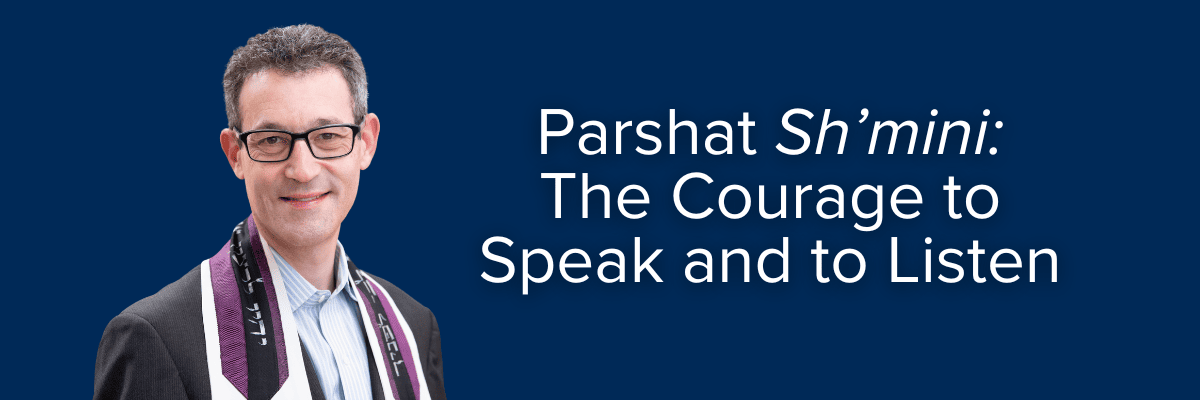Parshat Sh’mini signifies very beginning of Jewish practice. The Tabernacle is finished and ready for its first ceremony. As part of their ordination, the priests have been confined to the entrance of the Tent of Meeting for seven days. On yom hash’mini, the eighth day, they finally offer their first sacrifice. Then, they and the people wait in anticipation and anxiety for this offering to be accepted. Spoiler: it is. A dramatic fire emerges from heaven to consume it, and the crowd cheers with jubilation. But the suspenseful moments between the sacrifice and its acceptance tell an interesting story.
While the people are waiting, the Torah tells us, they are blessed. What is interesting here is what we do not know. What words are said by Moses and Aaron? The Torah is silent, and the rabbinical commentators energetically take up the question. The obvious choice is the famous Y’varechecha, or Priestly Benediction: May God bless you and keep you; may God shine a light on you and be gracious to you; may God turn towards you and grant you peace. That answer seems to make sense but requires great flexibility, because these words are not actually found in Torah until much later. How can Moses and Aaron know them now? Still, almost every commentator insists that this is the blessing used. Only one, the Ramban or Nachmanides, offers a different, very un-Jewish answer. According to him, what Aaron and Moses say is, simply, something from their heart. In other words, they make up a new blessing on the spot! For some of us today, this may seem unremarkable. But for the rabbis who composed a tradition in which every blessing and every prayer is so carefully proscribed, it was almost unimaginable.
This Passover holiday, more than ever, vital and far-reaching questions hung over our seders. In this context, the Ramban’s revolutionary interpretation is useful. The time-honored words of our tradition ground us. They remind us of our deepest values. They bond us together and give us strength at important moments of growth and change. But there are times when remaining true to our values – and making an authentic offering to God and our community – require something different. When the people stand at the precipice of a new age for their people, before the sound of the fire and the loud voices of cheering, there are a few minutes of quiet truth. Moses and Aaron have the courage to say something new, and their fellow Israelites are able to listen. This is the blessing the moment requires.
At a time when the pressures are so strong to either be silent or say the same words that have been said for generations, we must have the courage to speak our truth and let others speak theirs. Some of the words we hear will be hard to say and hard to hear. Some will be wrong and will require a response. But the blessings that are needed in a new age, with new challenges, cannot be brought on by using only the old words. They cannot be achieved by silencing each other. The blessings of our future demand new and authentic acts of speech as well as humble acts of listening. They demand the words of our hearts.
Wishing you a Shabbat Shalom,
Rabbi Jeffrey Saxe


